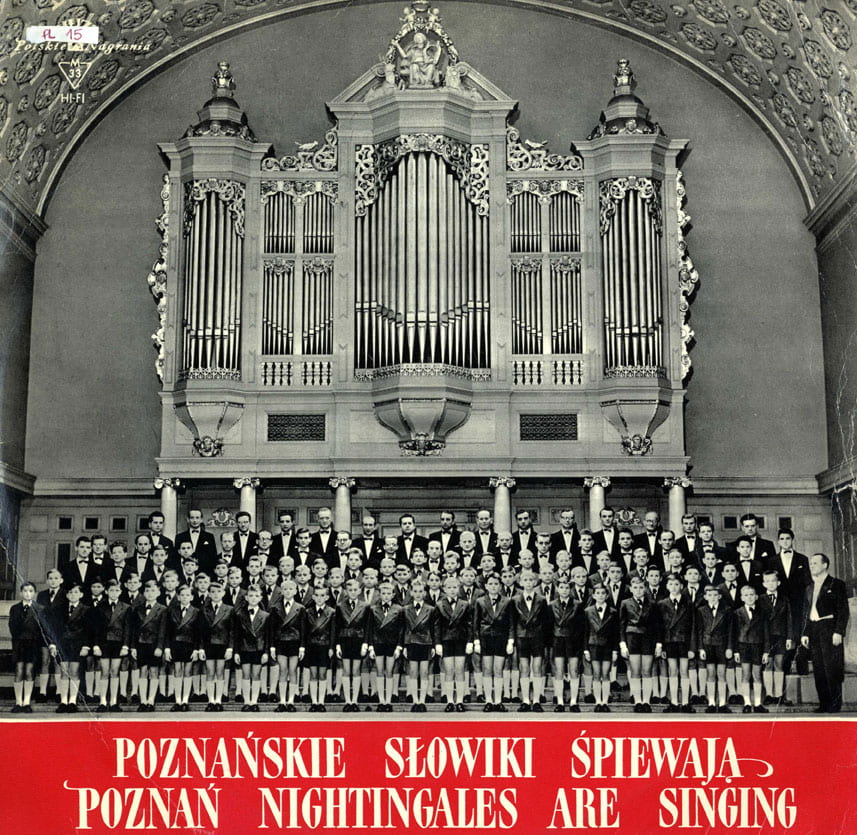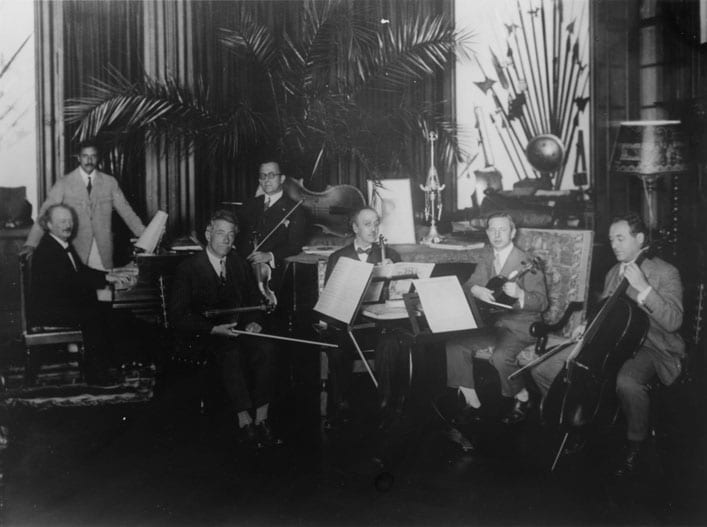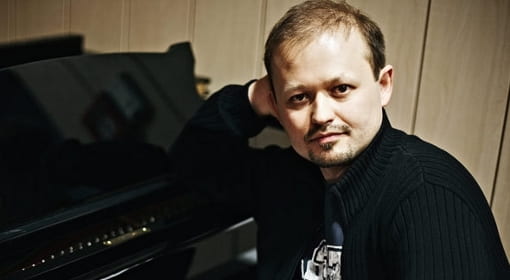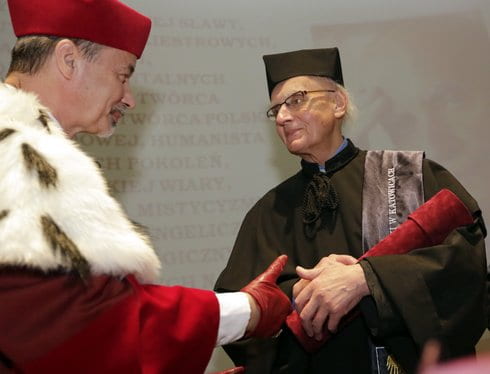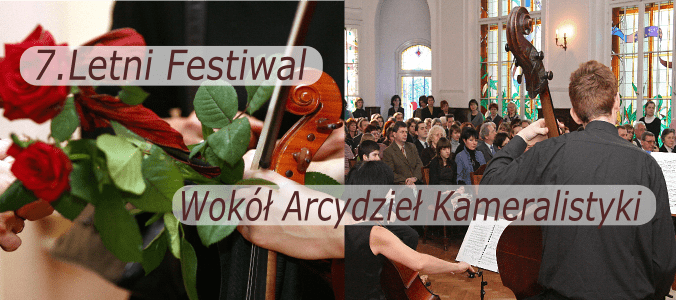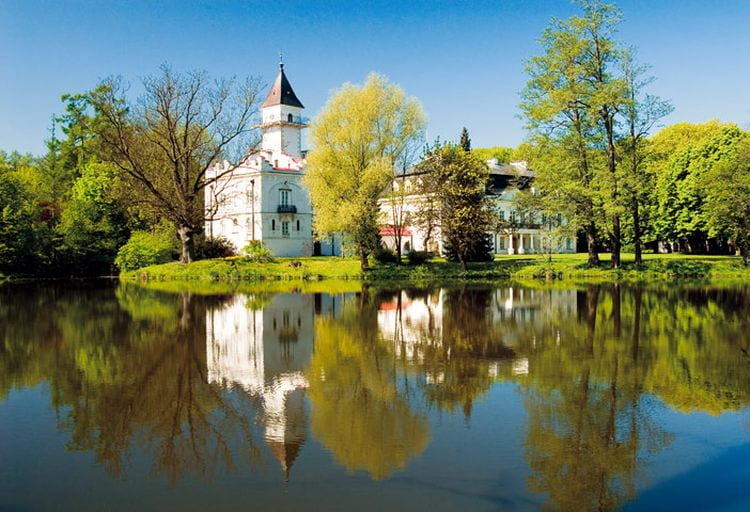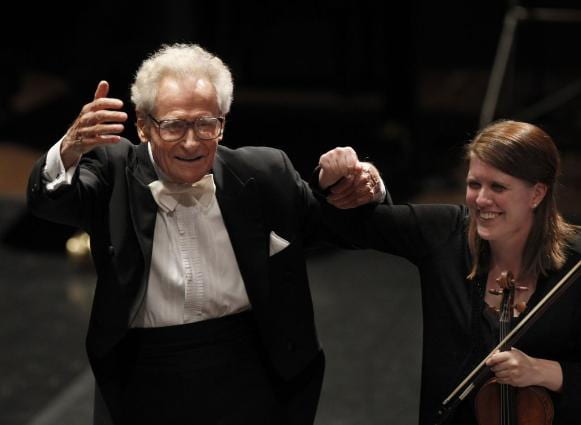Polish Music Newsletter Vol. 18, no. 7
Obituary
Lessons In Music & Life: In Memoriam Stefan Stuligrosz
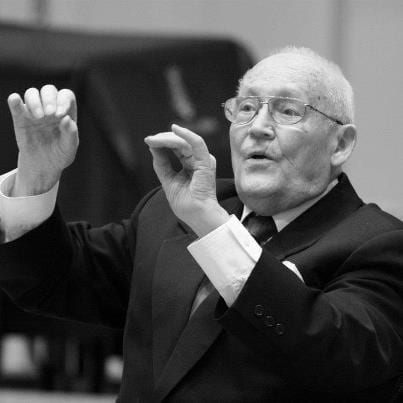 With the passing of Stefan Stuligrosz on June 15, the music world of his native city of Poznań and that of all of Poland lost a highly influential and indeed truly towering figure. Popularly referred to as “Professor,” Stefan Stuligrosz’s other, more exclusive title was Druh. An equivalent of a “Scoutmaster” or “Coach” in English, this is how he was addressed by the men and boys of the Poznańskie Słowiki [Poznań Nightingales Choir], the world-famous ensemble that Stuligrosz led for the unprecedented period of seven decades.
With the passing of Stefan Stuligrosz on June 15, the music world of his native city of Poznań and that of all of Poland lost a highly influential and indeed truly towering figure. Popularly referred to as “Professor,” Stefan Stuligrosz’s other, more exclusive title was Druh. An equivalent of a “Scoutmaster” or “Coach” in English, this is how he was addressed by the men and boys of the Poznańskie Słowiki [Poznań Nightingales Choir], the world-famous ensemble that Stuligrosz led for the unprecedented period of seven decades.
Stuligrosz’s tenure with the choir began in 1939 when, at the age of nineteen, he took over the ensemble from Fr. Wacław Gieburowski. A well-known priest and leader of the Poznań Cathedral Choir, Gieburowski was arrested by the Germans shortly after the outbreak of World War II. Rehearsing in secrecy and performing in various Poznań churches throughout the war, Stuligrosz and his boys’ and men’s choir expanded their concerts to other cities in Poland by the 1950s, and gradually began to tour the world. By the early 1960s, the Poznańskie Słowiki performed in the White House for President Kennedy. Between this concert, their numerous recordings and a film about the ensemble, international fame and recognition for the Nightingales had quickly followed suit.
Shortly after the Nightingales returned from the U.S., I auditioned for its music director and leader. Complimented on my reading and foreign language skills and having passed a solfége exam, I joined the alto section in the ensemble of about sixty men and boys. By this time the Nightingales were already a fully professional choir attached to the Poznań Philharmonic. Our three-hour rehearsals took place on Monday, Wednesday and Friday evenings. At the end of each month, a small stipend was paid out to every chorister. We collected it at the office which, just like our rehearsal hall, was located in the Poznań Philharmonic’s headquarters. It was a massive, late nineteenth century Neo-Romanesque sandstone building. Its façade—once pale yellow and elegant—was now grey and foreboding after decades of heavy weather and two world wars. Located right in the middle of Poznań, the building was one of the dependencies of the German Imperial Castle, located directly across the street. Oversized windows in our rehearsal room afforded a full view of the Castle and, and diagonally across the plaza, we could see the neo-Gothic arches of the University Hall, where the choir and the Philharmonic performed.
Our rehearsal schedule made for rather long school days. On top of that, when we toured all schoolwork had to be made up since no slipping in academic performance was tolerated. For the first time in my life I realized the importance of discipline, organization and efficiency. Our leader—Druh—was not only introducing us to world’s greatest music but also giving us important lessons about responsibility in life. He could be benevolent, supportive and kind, as he unfailingly was when he met with my mother and reported on my progress. But he could be very demanding and stern when he encountered thoughtless or irresponsible behavior. Being in the choir was a little bit like being a boy scout—honor, discipline, courtesy, and good citizenship were part of the curriculum just as much as the motets by Palestrina and Wacław z Szamotuł, or music by Bach, Handel, Mozart, or Beethoven, among others.
In addition to the regular choir practice, tours and concerts, there were other—strictly voluntary—musical services to attend. Every Sunday, Stefan Stuligrosz would place himself at the organ in the Dominican Friars’ Church in Poznań and any member of the choir willing to participate in the service was welcome to join in. With great pleasure most of us did so, and today the memories of the Midnight Mass with Druh’s inspired arrangements of Christmas Carols still resonate in my ears. Likewise, the sounds of Easter sunrise service mixed with the scent of white lilies drifting to the choir loft seem just as vivid after all these years.
The life of the choir was strongly shaped by Druh’s reverence for music and its traditions, his strong faith and noble patriotism, and his fatherly concern for the welfare of his young charges. In spite of the fact that, during decades of his years with the choir, he had come to know a few thousand young men—Stefan Stuligrosz always remembered each and every one of them. His resonant, often booming voice was instantly recognizable: it was a most pleasant sound when it conveyed praise but truly frightening when it poured scorn on the offender. Yet, his stern warnings were almost always followed by a hug and a pat on the back, with the implicit encouragement to try and improve in all areas of life.
Over the years, we listened to and performed a number of musical masterpieces. We heard countless ad hoc lectures on history and performance practice during our rehearsals. We discovered fascinating and useful secrets of concert touring. We matured by interacting with our peers and formed many lasting friendships. Most importantly, much of what we learned in the choir—whether directly connected to music or not—had a significant and positive influence on our lives.
I felt very privileged to sing for the Poznań Nightingales for several years until my voice changed. As a child, I deeply admired Druh’s strong musical and moral authority and, to this day, I continue to see it as an essential quality whenever it is my turn to work with young musicians. I was very proud that, even at my tender age, I was treated like a young professional. The monthly stipend was a tangible proof that being a musician actually paid off and it was a strong motivation to continue on the chosen path.
 There were many other fascinating aspects of being in the choir as well. I remember one winter travelling to Łódź for postproduction voiceover sessions for a film about the Nightingales. It was a long and bumpy bus ride from Poznań followed by an exciting time in the best-known film studio with sound engineers and the latest camera and recording equipment. As an unexpected bonus, I saw several celebrity actors dashing in and out of film sets, taking a cigarette break, or getting a quick meal in the studio canteen. From my travels with the choir I also learned how to properly fold shirts and suits, how to pack bags for tours, how to endure a performance of the complete Messiah in concert, alongside many other useful things.
There were many other fascinating aspects of being in the choir as well. I remember one winter travelling to Łódź for postproduction voiceover sessions for a film about the Nightingales. It was a long and bumpy bus ride from Poznań followed by an exciting time in the best-known film studio with sound engineers and the latest camera and recording equipment. As an unexpected bonus, I saw several celebrity actors dashing in and out of film sets, taking a cigarette break, or getting a quick meal in the studio canteen. From my travels with the choir I also learned how to properly fold shirts and suits, how to pack bags for tours, how to endure a performance of the complete Messiah in concert, alongside many other useful things.
How much this experience meant to me became clear some years later when, after studying in France, I returned to Poznań and went through a series of entrance exams to the Academy of Music. By that time Professor Stuligrosz served as the Rector of this university-level institution. After my recital he came out to greet me. He was as happy and encouraging as ever. “Excellent and passionate Chopin,” he said, shaking my hand briskly and looking straight into my eyes. Druh’s head was slightly tilted, his face smiling. My mind raced back to the audition and the day I joined his choir. At that moment I realized that I never left it.
More information about Stuligrosz in English and the Poznańskie Słowiki Choir is available at www.slowiki.poznan.pl. For further obituaries, visit wiadomosci.wp.pl, www.wieniawski.pl, or m.wyborcza.pl.
PMC News
New Donations
Rare Paderewski Memorabilia Donation
Louis B. Appleton, Jr. and Anne Appleton-Strakacz, friends and supporters of the Polish Music Center, have recently donated another tranche of extremely valuable and fascinating documents relating to Paderewski, Helena Liibke (Helena Paderewska’s personal secretary), and Sylwin Strakacz (Paderewski’s long-time personal secretary). Here are the highlights of this unprecedented gift:
- Four photo albums, showing a variety of gatherings and activities in Paderewski’s Swiss residence, Riond-Bosson. Captions with some of the photographs will prove invaluable in identifying persons and dates of events seen in these photographs;
- A box of photographs of Helena Liibke and her family, dating from ca. 1880-1910 and taken in Russia, Abkhazia, and Poland;
- A number of large-format photos, including 3 portraits of Paderewski, Paderewski with Fritz Kreisler and other musicians;
- Papers, documents and newspaper clippings as well as letters (official and private) to and from Sylwin Strakacz;
- Papers, documents and newspaper clippings related to Paderewski’s will;
- Paderewski’s letter to Mrs. Vernon Kellogg (signed and dated June 16, 1941) as well as drafts for a number of cables from 1929-1930;
- Papers, copies of letters, and Riond-Bosson menus written by Helena Liibke;
- Newspaper clippings of articles and copies of typescripts with various testimonials relating to Paderewski by Ignacy Kołłupajło, Silvio Mongini, Małgorzata Perkowska-Waszek, and Anne Appleton-Strakacz;
- A bound volume of A Sense of Destiny: The Letters of Ignace Jan Paderewski 1872-1899 (published privately) and a selection of photocopies of the original letters;
These materials will be added to the Paso Robles Collection and will greatly augment our collection of Paderewski-related treasures. Once again, we are most grateful for your generosity and continued good will towards the Polish Music Center. Dziękujemy!
Still More Paderewski!
Two more Paderewski-related items were donated to the PMC in June by Ms. Peggy A. Dalton, a resident of Northern California. They are two booklets with analytical notes by H. E. Krehbiel (1854-1923), author of several books on music and a well-known music critic of the New York Tribune. Containing detailed commentary and analysis of the compositions performed by Paderewski on his North American tours, these carefully prepared booklets served as the supplement to the regular program flyers given to the audiences at the door.
The first booklet covers Paderewski’s 1899-1900 tour and lists the managers, “Mr. Hugo Goerlitz “of London, Eng[land], and Mr. John C. Fryer.” We also find out that Paderewski’s program began with Schumann’s towering set of Symphonic Etudes followed by Beethoven’s Appassionata. After a group of Chopin’s shorter works (Ballade, Nocturne, Etude, and Waltz), Paderewski’s own Menuet, an arrangement of a Strauss Waltz by Tausig and Liszt’s Sixth Hungarian Rhapsody closed the program.
The second booklet of Mr. Krehbiel’s notes covers the 1907-1908 tour and is very interesting for several reasons. This was the only U.S. tour for which Paderewski had used the Weber pianos, instead of Steinways, as was his custom before and afterwards. On this occasion, Paderewski opened the recital with his own Variations and Fugue, Op. 23, introducing this work for the first time to his American audiences. Followed by Beethoven’s Sonata in E-flat, op. 27 and three Schubert-Liszt transcriptions, Paderewski worked himself up to the “Polish” section of his program. Two Etudes, a Nocturne and a Scherzo by Chopin were followed by Stojowski’s Chant d’amour. Zygmunt Stojowski (1870-1946), was a close friend and one of Paderewski’s few of students. The two first met in Kraków in the mid 1880s and remained close until Paderewski’s death in New York in 1941.
The original price of the “Analytical Notes on Mr. Paderewski’s Programmes” for the 1907-1908 tour booklet was (only!) 10 cents. For us—and anyone interested in Paderewski—this item with its history and connections to a treasure trove of documents relating to Paderewski and held in the so-called Paso Robles Collection at the Polish Music Center is very precious indeed. Thank you, Ms. Dalton. Dziękujemy!
[Photo credit: Encore Editions – encore-editions.com]
News
Zieliński Premiere
On Sunday June 17 the Polish Radio Chamber Orchestra, led by artistic director Łukasz Borowicz, performed the world premiere of ElemenT for chamber orchestra, the newest work by Maciej Zieliński, in the Polish Radio Lutosławski Concert Studio in Warsaw. The concert also provided an opportunity to hear rarely performed works by Polish composers of the late 19th and early 20th century, including: Piano Concerto, Op. 20 by Józef Wieniawski and Symphony No. 1, Op. 8 by Witold Maliszewski. The solo part was performed by the excellent pianist Beata Bilińska.
The concert also marked the end of the orchestral season and the year-long collaboration of the composers within the Composer in Residence program administered by the Institute of Music and Dance [IMiT]. Working with Zieliński during the past season, the Polish Radio Orchestra has premiered two others of his new works as well—Symphony No. 5 and Barocode I for violin, viola and string orchestra. Zieliński—and racked up recording successes as well. Their joint recording “Across the Millenniums”was released last year, receiving very good reviews and earning the composer a nomination for a 2012 Fryderyk Award. The world premiere of ElemenT represents the crowning achievement of this fruitful collaboration.
[Source: polmic.pl]
New Work By Kilar
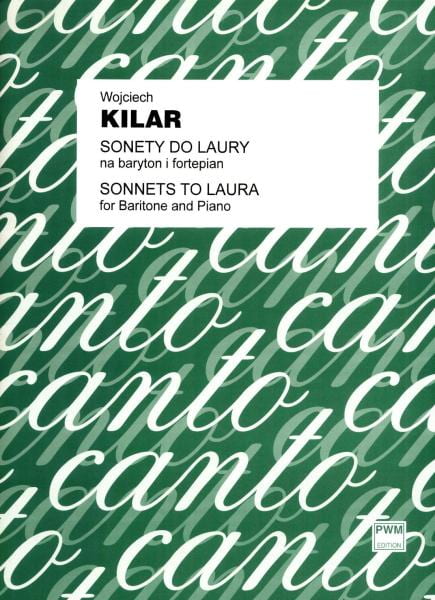 Wojciech Kilar has completed his new piece entitled Sonnets to Laura. Written to texts of Francesco Petrarka’s poems, the composition consists of four sonnets for baritone and bass. The premiere of the work was given in June 2012, during the ceremony of opening of the Musical House for Seniors in Kąty.
Wojciech Kilar has completed his new piece entitled Sonnets to Laura. Written to texts of Francesco Petrarka’s poems, the composition consists of four sonnets for baritone and bass. The premiere of the work was given in June 2012, during the ceremony of opening of the Musical House for Seniors in Kąty.
[Source: pwm.com.pl]
King Roger At Santa Fe Opera
King Roger—the landmark opera by Polish composer Karol Szymanowski that has electrified audiences throughout Europe—will have its first of five performances by The Santa Fe Opera (TSFO) on Saturday, July 21, continuing through August 14, 2012. Composed in 1924, King Roger captivates listeners with a shimmering, translucent style that melds late Romanticism with modern harmonic freedom. First performed in 1926, it was more than 60 years before this work of volcanic emotional and spiritual intensity would be seen in the Americas. Now the magnetic appeal of its music and its philosophically challenging story have been winning new admirers on both sides of the Atlantic. Although there have been a number of recent productions in the U.S., this offering by Santa Fe—one of the most highly acclaimed and innovative summer opera festivals in the nation—is the first by a major opera company.
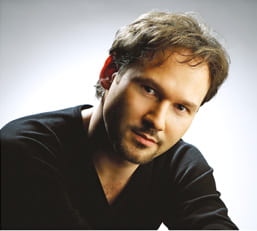 The title role in this TSFO production will be sung by Metropolitan Opera star, Mariusz Kwiecień (left), in his first US appearance as the main protagonist—12th-century Sicilian King Roger II. Kwiecień has performed this role twice, in Paris and Madrid, and performs leading roles at major opera houses throughout the world, including New York’s Metropolitan Opera, London’s Covent Garden, and the Lyric Opera of Chicago, among others. The leading Polish baritone is an enthusiastic advocate for Szymanowski’s work, and states that he wishes to perform it “everywhere in the world.” The shepherd who turns life upside down in the kingdom will be sung by American tenor William Burden. A former member of the Apprentice Artist Program at TSFO and a Santa Fe favorite, Burden appears regularly with leading opera companies. The King’s wife is Erin Morley, last seen in Santa Fe as the Queen of the Night in the 2009 revival of Mozart’s The Magic Flute. This season she performed three roles in Robert Lapage’s Metropolitan Opera Ring cycle: Woglinde in Das Rheingold, Waldvogel in Siegfried, and Woglinde in Die Götterdämmerung.
The title role in this TSFO production will be sung by Metropolitan Opera star, Mariusz Kwiecień (left), in his first US appearance as the main protagonist—12th-century Sicilian King Roger II. Kwiecień has performed this role twice, in Paris and Madrid, and performs leading roles at major opera houses throughout the world, including New York’s Metropolitan Opera, London’s Covent Garden, and the Lyric Opera of Chicago, among others. The leading Polish baritone is an enthusiastic advocate for Szymanowski’s work, and states that he wishes to perform it “everywhere in the world.” The shepherd who turns life upside down in the kingdom will be sung by American tenor William Burden. A former member of the Apprentice Artist Program at TSFO and a Santa Fe favorite, Burden appears regularly with leading opera companies. The King’s wife is Erin Morley, last seen in Santa Fe as the Queen of the Night in the 2009 revival of Mozart’s The Magic Flute. This season she performed three roles in Robert Lapage’s Metropolitan Opera Ring cycle: Woglinde in Das Rheingold, Waldvogel in Siegfried, and Woglinde in Die Götterdämmerung.
The conductor, making his Santa Fe Opera debut, is Evan Rogister, a young American who has been active in the European opera scene. The piece is directed by Stephen Wadsworth, one of the most acclaimed opera directors in the world, who directed among many others Boris Godunov, Rodelinda and Iphegnie en Tauride for the Metropolitan Opera as well as Amelia and Wagner’s Ring for the Seattle Opera.
According to Kwiecień, who speaks eloquently about the opera, the plot is an enigma. Its beauty, he says, is in the interpretation, which is left to the viewer. A young shepherd appears in the Christian kingdom ruled by King Roger. He tells the King that he is committed to the Dionysian philosophy with its abandonment to joy and ecstasy, and a creed of love and beauty. The palace is in turmoil as the stranger leads its inhabitants, including the Queen, to a distant place, leaving the King. Wishing to reclaim his wife, Roger decides to join the followers. The climax comes as the King is transformed during a bacchanal.
This production of King Roger is made possible with support from the Adam Mickiewicz Institute in Warsaw and the Polish Cultural Institute – New York.
[Sources: polishculture-nyc.org, pwm.com.pl, santafeopera.org]
A Night With Kilar
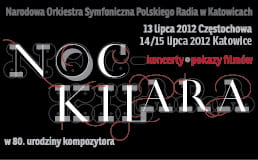 The greatest event related to the 80th birthday of Wojciech Kilar will be the “Noc Kilara” [A Night with Kilar], organized by the National Symphony Orchestra of Polish Radio (NOSPR) in Katowice. Four concerts will be held on July 14—at 4:00pm, 6:00pm, 8:00pm and 10:30pm—during which the orchestra will perform Kilar’s religious music and compositions inspired by Tatra folklore. The celebrations will begin and end with screenings of films scored by Wojciech Kilar, held at the Światowid and Rialto theaters. The Wojciech Kilar Night will be preceded by a festive concert at Jasna Góra on July 13, featuring a performance of Kilar’s Missa pro pace.
The greatest event related to the 80th birthday of Wojciech Kilar will be the “Noc Kilara” [A Night with Kilar], organized by the National Symphony Orchestra of Polish Radio (NOSPR) in Katowice. Four concerts will be held on July 14—at 4:00pm, 6:00pm, 8:00pm and 10:30pm—during which the orchestra will perform Kilar’s religious music and compositions inspired by Tatra folklore. The celebrations will begin and end with screenings of films scored by Wojciech Kilar, held at the Światowid and Rialto theaters. The Wojciech Kilar Night will be preceded by a festive concert at Jasna Góra on July 13, featuring a performance of Kilar’s Missa pro pace.
According to the organizers:
After the Wojciech Kilar Day, organized 5 years ago, it’s time to organize a Wojciech Kilar Night—an event of music and film that will begin early in the afternoon on the 14th and will conclude after midnight on July 15. The event is a birthday present, a thank you and a tribute, which the National Radio Symphony Orchestra in Katowice pays to the composer from the ensemble and the residents of the region.
Besides NOSPR, the ensembles participating in the celebrations will include the Silesian Choir and Philharmonic Orchestra, the Kraków Polish Radio Choir as well as the City of Katowice vocal ensemble, Camerata Silesia. Concerts will take place in the Cathedral of Christ in Katowice, the Church of Mary and the concert hall of the Music Academy in Katowice.
For a full program of “Noc Kilara,” visit wojciechkilar.pl. Also, you can read a list of tributes to Kilar on his 80th birthday at www.rmfclassic.pl (in Polish).
[Sources: pwm.com.pl, nospr.org.pl]
New Autographed Chopin Manuscript For NIFC
According to the external news service of Polish Radio:
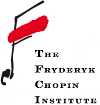 The National Fryderyk Chopin Institute in Warsaw has acquired an autographed manuscript of the composer’s Waltz in F minor Op. 70 No.2.
The National Fryderyk Chopin Institute in Warsaw has acquired an autographed manuscript of the composer’s Waltz in F minor Op. 70 No.2.
The manuscript was purchased at an auction in Berlin for 300,000 euro and contains a dedication to the pianist Anne Caroline Belleville-Oury, whom Chopin met in June 1830 after her recital in Warsaw, shortly before his departure from Poland, first to Vienna and then to Paris.
Another new acquisition of the Chopin Institute is Chopin’s visiting card presented to the French pianist Marie de Rozieres. Chopin gave her some lessons and in 1840 introduced her to George Sand as a teacher for her daughter Solange. The Institute paid 15, 000 euro for the item.
The third Chopin memorabilia, purchased at the Berlin auction for 17, 000 euro, is the composer’s letter to an artist whose name has not been established so far. It is a formal letter in which Chopin expresses his regret that he is unable to accept the addressee’s invitation.
All the new acquisitations will soon be put on display in the Chopin Museum in Warsaw. The purchase was co-financed by the Ministry of Culture and National Heritage.
(Posted by ‘mk’ | June 19, 2012 | thenews.pl)
[Source: thenews.pl]
Warsaw Chamber Opera Protests
The news service of Polish Radio has been closely following the developments surrounding the possible devastating cuts to the budget of the Warsaw Chamber Opera. In response to the cuts passed by the Assembly of Mazovia Voivodeship in December 2011, the WCO has been staging interesting and artistically driven protests. Read about them in excerpts of two articles from www.thenews.pl posted below:
Close on 3,500 music fans visited the Warsaw Chamber Opera for Mozart Night, which was both an artistic event and protest against cuts to the company’s funding. During a nine-hour marathon one hundred singers and instrumentalists presented excerpts from Mozart operas, interspersed with the composer’s songs and chamber pieces.
The event was both a promotion of the annual Mozart Festival, which opens in mid-June, and the company’s protest against sizeable cuts in subsidies from the Marshal of the Warsaw Province, which threaten the further functioning of the institution. Signatures were collected under a petition to the Minister of Culture and National Heritage urging the Ministry to give the Warsaw Chamber Opera the status of a national institution of culture and take over its financing.
[. . .]
(Posted by ‘mk/pg’ | May 28, 2012 | thenews.pl)
The Warsaw Chamber Opera staged an open-air performance of Mozart’s Requiem in front the Ministry of Culture and National Heritage on Tuesday, as cuts threatened to cripple the institution. The concert, which was given by the 70-strong orchestra, 60 members of the company’s choir and four of its soloists, attracted several hundred people and was another in a series of protests following major subsidy cuts from the Marshal of the Warsaw Province.
Friends of the ensemble fear that the very functioning of the Warsaw Chamber Opera is at risk. Over 20, 000 signatures have been collected thus far in a petition which calls on the Ministry to give the Warsaw Chamber Opera the status of a national institution of culture and take over its financing. The company has received letters of support from members of some of the world’s most prestigious opera companies, including the Metropolitan, La Scala and the Covent Garden.
Founded in 1961, the Warsaw Chamber Opera is the world’s only company to include all of Mozart’s stage works in its repertoire. They are performed during an annual six-week-long Mozart Festival, which was launched in 1991, the bicentenary of the composer’s death. The 2012 Mozart Festival, which begins on 15 June, will be the 22nd, and as the Warsaw Chamber Opera fears, last edition of the event.
The company’s founder and director Stefan Sutkowski submitted his resignation several weeks ago. It is to take effect after the conclusion of the Mozart Festival, at the end of July.
(Posted by ‘mk’ | May 30, 2012 | thenews.pl)
New Site For Panufnik
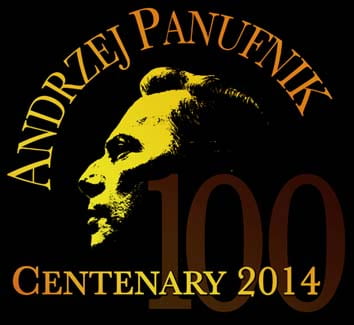 A new website exploring composer Andrzej Panufnik (1914-91)—the music and the man—has been launched at www.panufnik.com. 2014 marks the Polish-born composer’s centenary and this new website provides a welcome overview for those researching repertoire for the celebrations. In addition to details of Panufnik’s music and soundclips of his works, the website offers a gallery of photographs—many never seen before—and detailed biographical information. Social history and musical life intertwine in Panufnik’s personal story: survival in wartime Warsaw and the Nazi occupation, political pressures under the Soviet-led regime, escape to the UK, challenges in exile, and the composer’s momentous return visit to Warsaw in 1990.
A new website exploring composer Andrzej Panufnik (1914-91)—the music and the man—has been launched at www.panufnik.com. 2014 marks the Polish-born composer’s centenary and this new website provides a welcome overview for those researching repertoire for the celebrations. In addition to details of Panufnik’s music and soundclips of his works, the website offers a gallery of photographs—many never seen before—and detailed biographical information. Social history and musical life intertwine in Panufnik’s personal story: survival in wartime Warsaw and the Nazi occupation, political pressures under the Soviet-led regime, escape to the UK, challenges in exile, and the composer’s momentous return visit to Warsaw in 1990.
Below are two articles recently posted on this new website:
Warsaw Variations: Lutosławski and Panufnik BBC Radio 4 programme
A fascinating insight into how Panufnik and fellow composer Witołd Lutosławski helped to lift spirits in the misery of Nazi-controlled, half-starved Warsaw in World War II was broadcast on BBC Radio 4 recently.
 Concerts or any large gatherings of Polish people were banned during the war years, but the two young composers were able to play in “artistic cafés”, much appreciated by music-hungry Warsaw inhabitants. They also risked their lives performing in illegal underground concerts for a mixed audience of music lovers and resistance fighters, all of whom faced likely imprisonment or death even for attending. This enthralling programme traced the post war period also when Nazi domination was succeeded by Communist bullying.
Concerts or any large gatherings of Polish people were banned during the war years, but the two young composers were able to play in “artistic cafés”, much appreciated by music-hungry Warsaw inhabitants. They also risked their lives performing in illegal underground concerts for a mixed audience of music lovers and resistance fighters, all of whom faced likely imprisonment or death even for attending. This enthralling programme traced the post war period also when Nazi domination was succeeded by Communist bullying.
You can listen to the programme, by Falling Tree Productions, here.
New Ballet choreographed to Rhapsody, Sinfonia Sacra and Tragic Overture
A dramatic new ballet with the Polish National Ballet choreographed by Emil Wesołowski and conducted by Jakub Chrenowicz has been premièred with four performances in Warsaw in April 2012.
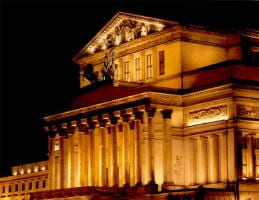 Cain and Abel uses Panufnik’s Rhapsody, the third vision of Sinfonia Sacra and Tragic Overture in a version adapted by Panufnik himself for Sir Kenneth MacMillan in 1969. It is the latest of several ballets choreographed to Panufnik’s music following in the footsteps of great choreographers including MacMillan, Martha Graham, Krzysztof Pastor, David Bintley, Gerald Arpino. For news of further performances contact Teatr Wielki, Warsaw (pictured at right).
Cain and Abel uses Panufnik’s Rhapsody, the third vision of Sinfonia Sacra and Tragic Overture in a version adapted by Panufnik himself for Sir Kenneth MacMillan in 1969. It is the latest of several ballets choreographed to Panufnik’s music following in the footsteps of great choreographers including MacMillan, Martha Graham, Krzysztof Pastor, David Bintley, Gerald Arpino. For news of further performances contact Teatr Wielki, Warsaw (pictured at right).
You can see a short excerpt of the ballet here.
[Sources: boosey.com, panufnik.com]
Skrowaczewski On Life & Art
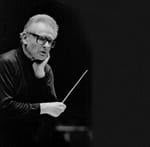 After a lengthy stint of guest conducting in Japan—where he serves as honorary conductor laureate of the Yomiuri Nippon Symphony Orchestra—Maestro Stanisław Skrowaczewski has returned to his home in Minnesota. While at home he has conducted several concerts with the Minnesota Orchestra (formerly the Minneapolis Symphony), the ensemble with which he has been connected for 52 years since he defected from Poland in 1960 to serve as musical director (1960-1979) and subsequently as conductor laureate.
After a lengthy stint of guest conducting in Japan—where he serves as honorary conductor laureate of the Yomiuri Nippon Symphony Orchestra—Maestro Stanisław Skrowaczewski has returned to his home in Minnesota. While at home he has conducted several concerts with the Minnesota Orchestra (formerly the Minneapolis Symphony), the ensemble with which he has been connected for 52 years since he defected from Poland in 1960 to serve as musical director (1960-1979) and subsequently as conductor laureate.
During an April 19 concert with the Minnesota Orchestra, Maestro Skrowaczewski received the Bruckner Society of America’s Kilenyi Medal of Honor for his life-long devotion to interpreting the works of Anton Bruckner (read more in the June 2012 Newsletter), whose music had affected Skrowaczewski deeply at a very young age; he continues to program and record Bruckner regularly to this day. During the June 14 concert—which ended the 2011/2012 season and began the ensembles upcoming hiatus due to construction—the Maestro was joined on stage by nine other great artists associated with this internationally renowned institution (read more in the Performances section below).
Although this great composer-conductor continues an active international career even now at 89 years old, as he sat down for an interview with Minnesota StarTribune writer Graydon Royce in April, he seemed to welcome this break in his busy schedule as an opportunity to return to some of the things that he holds most dear:
“Composing will be healing,” he said, referring to his sadness over Krystyna’s passing [see wife’s obituary in the September 2011 Newsletter]. “It is inner healing, a long process of meditation and getting back to myself undisturbed. Otherwise, it is not worth it.”
There clearly is melancholy in the man. He misses friends who have died. Once an avid skier and mountain climber, he can only smile at those memories.
Yet Skrowaczewski still possesses an inquisitive interest in life and seems to know deep within himself that there is work to be done, music to be interpreted and people to meet. If he laments the populism of modern culture, it is not because he begrudges the tastes of others. It is because of his passion for art.
“We never played for the public,” he said of his orchestra here. “We played for the art and tried to convince the public that this is great art.”
Graydon Royce’s full article from April 14, 2012 is available for purchase from the archives of the Minnesota StarTribune. More about the career and artistry of Maestro Stanisław Skrowaczewski can be found in Seeking the Infinite: The Musical Life of Stanisław Skrowaczewski, a recent biography by Frederick A. Harris, and on the official website dedicated to the world renown artist: www.seekingtheinfinite.com.
[Sources: press release, startribune.com, seekingtheinfinite.com]
Rent PWM Ochestral Scores Online With Zinfonia
 Polish Music Publishers [Polskie Wydawnictwo Muzyczne, PWM] has become a partner of Zinfonia – an internet portal that brings together music publishers from around the world. As a result of this, it is now possible to order orchestral materials online, which decidedly shortens and simplifies the loan procedures.
Polish Music Publishers [Polskie Wydawnictwo Muzyczne, PWM] has become a partner of Zinfonia – an internet portal that brings together music publishers from around the world. As a result of this, it is now possible to order orchestral materials online, which decidedly shortens and simplifies the loan procedures.
Zinfonia Portal was founded in July 2011 by Peter Grimshaw (BTM Innovation Pty Ltd) and four of the largest publishers of contemporary music today: Boosey & Hawkes (part of the Imagem Group), Universal Music Publishing Classical, Music Sales Group and Edition Peters Group. PWM joined the project in November of that year and began working on the Polish language version as well as customizing the program to Polish financial and tax requirements.
www.zinfonia.com is the only platform of this type that collects complete information from loan directories of individual publishers. In this way, you can find all the information about the availability of a work in a given country, full specifications of the work and information about the composer in one place. It features pieces from the catalogues of PWM, Boosey & Hawkes, Music Sales Group, Edition Peters Group and Universal Music Publishing Classical and also the catalogues of publishers that joined later, such as Oxford University Press and Fennica Gehrman. It is also expected that publisher Universal Edition Wien (UE) will join this group. Polish composers are represented by several of these publishers, in addition to PWM. The greater the number of publishers, the easier the ordering process will become, but the pace of change is also dependent on the level of interest from the orchestras and ordering materials by Zinfonia.
If you have any questions please contact the PWM Orchestral Materials Library (tel. 22 635 35 50; bmo@pwm.com.pl).
[Source: pwm.com.pl]
‘Music Of Our Times’ Workshops
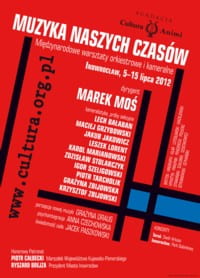 ‘Muzyka naszych czasów’ [Music of our Times] International Orchestral and Chamber Music Workshops (July 1-15, 2012 – Inowrocław, Poland) are an educational atmosphere in which young musicians not only practice their skills but also shape their musical awareness and raise their artistic sensitivity. The orchestra, both symphonic and string, will be conducted by Marek Moś who will work with participating performers on contemporary Polish compositions.
‘Muzyka naszych czasów’ [Music of our Times] International Orchestral and Chamber Music Workshops (July 1-15, 2012 – Inowrocław, Poland) are an educational atmosphere in which young musicians not only practice their skills but also shape their musical awareness and raise their artistic sensitivity. The orchestra, both symphonic and string, will be conducted by Marek Moś who will work with participating performers on contemporary Polish compositions.
In addition, during these workshops participants will have the opportunity to meet with such excellent Polish composers as Paweł Szymański and Paweł Mykietyn. Organizers are convinced that direct talks with such great authorities will be an invaluable inspiration for each artist’s individual quest in the area of musical performance.
The workshops focus on chamber music as well. Under the watchful eye of Marek Moś, Maciej Grzybowski, Jakub Jakowicz, Piotr Tarcholik, Lech Bałaban, Karol Marianowski, Zdzisław Stolarczyk, Krzysztof and Grażyna Zbijowscy and Leszek Lorent, participants will study the jewels of chamber music.
[Source: mnc.cultura.org.pl]
Music Days At Łańcut
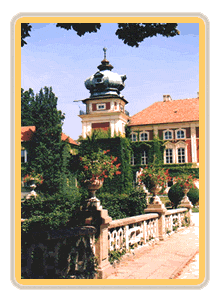 The Zenon Brzewski International Music Academy will be held at Poland’s Łańcut Palace throughout the month of July. Workshops for all talented music students—high school level and above—will be conducted by a number of famous professors from Poland and abroad. This year the program is geared particularly towards string players and will include concerts, rehearsals, and workshops in ear training and composition, as well as individual instruction.
The Zenon Brzewski International Music Academy will be held at Poland’s Łańcut Palace throughout the month of July. Workshops for all talented music students—high school level and above—will be conducted by a number of famous professors from Poland and abroad. This year the program is geared particularly towards string players and will include concerts, rehearsals, and workshops in ear training and composition, as well as individual instruction.
More information about the Łańcut program at: www.musiccourses-poland.com (Eng) and www.kursymuzyczne.pl (Pol).
[Source: PWM Newsletter]
Int’l Piano Competition “Rome 2012”
Italy’s Associazione Culturale Fryderyk Chopin is organizing their 22nd International Piano competition “Rome 2012.” The competition will be held from November 9-19, and the deadline for applications is October 22, 2012.
The competition is divided into two sections for soloists to compete in one round: “Section A” (for those bornduring or after 1993) and “Section B” (for those born during or after 1987). There are also two sections for piano duos to compete in one round: “Four Hands” (for those born during or after 1978) and “Two Pianos” (for those born during or after 1978). The coveted “Chopin Prize” is the grand prize of the three round competition for soloists, in which the third round is performed with orchestra, and has only one section (for those born during or after1978).
Repertoire, prizes and applications are available on: www.chopinroma.it. You can also find the group at www.facebook.com/chopinroma.
[Source: press release]
Musiccas – Bridging Musicianship And Technology
The annual MUSICCAS Scholarship Competition is designed to support the future generation of musicians while bridging technology and music. There is no application fee and the competition is open to pianists, instrumentalists and vocalists of all nationalities. The Competition is divided into two age groups: Junior Division (ages 12-16 as of July 5, 2012) and Senior Division (ages 17-24 as of July 5, 2012)—entrants under the age of 18 must have consent from a parent or legal guardian.
All materials for the 2012 Competition must be submitted by MIDNIGHT, JULY 31, 2012 (Pacific Daylight Time). Winners’ recordings will be posted on the MUSICCAS YouTube Channel.
Applicants can use the MUSICCAS system to automatically send audition materials, and within minutes, receive delivery confirmation. There is no need to purchase CDs, DVDs, packaging materials and other mailing items or spend time to physically send audition materials at mailing centers—however, there is a fee of $15.99 to send the digital audition files for review. High recording quality is preferred but Not Required. Judges will be looking at level of playing and talent, not recording quality. For concertos, piano (or orchestral) accompaniment is preferred but Not Required.
Music Complete Audition Services (MUSICCAS) was born out of personal frustration with the shortcomings of the current auditioning process. Fumbling through stacks of CDs and DVDs year after year, our founder—a faculty member at UC Berkeley—recognized a dire need to streamline the auditioning process. Meticulous planning and comprehensive research ensued and after numerous drafts on the drawing board and careful revisions to architectural wireframes, MUSICCAS now provides much needed organization to applicants, freedom to reviewers and convenience to schools.
[Source: musiccas.com]
Awards
Honorary Doctorate For Kilar
On June 17, 2012, the Faculty of Theology at the University of Silesia in Katowice presented composer Wojciech Kilar with an honorary doctorate. The ceremony took place one month before the 80th birthday of the artist and honored the composer’s more than 60 years in Katowice.
With this honor given specifically from the Faculty of Theology, the University decided to celebrate not only the composer’s musical achievements, but also his attitude towards life and commitment to his values. Representatives of the Silesian University described the honoree thus: “A humanist and champion of the young generations; a man of deep faith, contemplation and mysticism; a propagator of the Gospel message and biblical-theological content; a friend of those who are sensitive to beauty and spiritual values.”
This is the second such honor for the composer—in 1998 he received an honorary doctorate on behalf of the University of Opole.
[Sources: wiadomosci.onet.pl, pwm.com.pl]
Nat’l Choral Passion Song Composition Competition
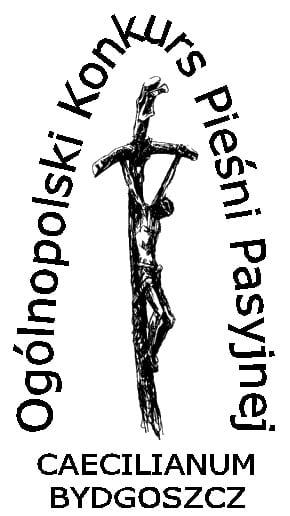 On June 8, 2012, the National Composition Competition for Choral Passion Song in Bydgoszcz was held for the fifth time. The subject of the competition was an a cappella setting of a Passion song for mixed choir (4-6 voices), using a Polish or Latin text.
On June 8, 2012, the National Composition Competition for Choral Passion Song in Bydgoszcz was held for the fifth time. The subject of the competition was an a cappella setting of a Passion song for mixed choir (4-6 voices), using a Polish or Latin text.
The First Prize was awarded ex aequo to:
- Justyna Kowalska-Lasoń for Oto drzewo Krzyża, na którym zawisło Zbawienie świata [Behold the Wood of the Cross, on which Hung the Salvation of the World]
- Szymon Godziemba-Trytek for O vos omnes
The Second Prize was not awarded.
The Third Prize was awarded to:
- Grzegorz Miśkiewicz for De profundis.
The two pieces awarded First Prize will be proposed to participating choirs for presentation at the VI National Competition of Passion Song in Bydgoszcz (March 16, 2013). The best performance will be awarded the Special Prize.
The jury consisted of: professor Dr. Paweł Łukaszewski (Fryderyk Chopin Music University in Warsaw) – chairman, professor Dr. Katarzyna Sokołowska (Fryderyk Chopin Music University in Warsaw), professor Mariusz Kończal (Music Academy in Bydgoszcz), composer Miłosz Bembinow (Fryderyk Chopin Music University in Warsaw) and Anna Wójtowicz (Federacja Caecilianum in Bydgoszcz) – secretary of the jury.
[Sources: pwm.com.pl, zchk-bydg.opoka.net.pl]
Nomination For Danielewicz’s Jazzowiska Trójmiasta
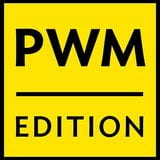 Jazzowisko Trójmiasta—a PWM publication about the history of jazz in the Polish cities of Gdańsk, Gdynia and Sopot between 1945-2010 by Stanisław Danielewicz—was among the fifteen books nominated for the grand prize in the Collected History Competition.
Jazzowisko Trójmiasta—a PWM publication about the history of jazz in the Polish cities of Gdańsk, Gdynia and Sopot between 1945-2010 by Stanisław Danielewicz—was among the fifteen books nominated for the grand prize in the Collected History Competition.
It was nominated by the jury—including Dr. Jarosław Kłaczków, Małgorzata Gołaszewska, Michał Przeperski, Sławomir Krempa, Roman Sidorski, and Michał Świgoń—which cited the book for its historical narrative covering historical facts, press and record reviews, interviews with musicians, and accounts of concerts in clubs and during festivals. The selling point of this book includes photographs of jazz musicians, and even concert programs and posters.
[Sources: pwm.com.pl, historiazebrana.pl]
Festivals
Festival Of Polish Music
The 8th Festival of Polish Music will be held in Kraków from July 13-21, 2012, in venues including the Kraków Philharmonic, Jagiellonian University, Franciscan Friars’ Church, Corpus Christi Church, and Galicia Jewish Museum. A variety of works will be presented, including Feliks Nowowiejski’s oratorio Quo vadis and Roman Statkowski’s opera Maria.
Nowowiejski’s Quo vadis will open the Festival on July 13 at the Kraków Philharmonic. Vocal soloists Olga Rusin, Jacek Jaskuła, and Krzysztof Szumański will be joined by the Poznań Grand Opera Choir and Sinfonia Iuventus orchestra, led by maestro Kaspar Zehnder. Quo vadis is one of three of Nowowiejski’s oratorios shaped by stylistic influences of Meyerbeer’s operas and Handel’s vocal writing.
Roman Statkowski’s Maria, premiered only in 2011 at the Wexford Opera Festival, will be given in a concert version at the closing concert of the Festival. The soloists and Polish Radio Choir of Kraków will be accompanied by the Kraków Festival Orchestra under the baton of Tomasz Tokarczyk. Maria is one of the best Polish operas written in the post-Moniuszko era and its musical language was clearly influenced by Tchaikovsky’s operas. The origins of Maria date back to 1903, when Statkowski received a prize in London for his opera Filenis. Shortly thereafter, a competition for an opera based on Antoni Malczewski’s poetic novel, Maria, was announced in Warsaw. Statkowski’s entry received the First Prize at that competition, in which two other notable Polish composers, Henryk Melcer and Henryk Opieński, had also participated.
The Festival guest performers also include the Motion Trio with a selection of arrangements of works by Kilar, Górecki, Bacewicz and Chopin and Capella Cracoviensis led by Jan Tomasz Adamus with a program of choral music. Yulianna Avdeeva—winner of the 2010 Chopin International Competition in Warsaw—will appear for the first time in Kraków, presenting a solo recital during the Festival. Sinfonia Cracovia orchestra will be heard at the Florianka Concert Hall in a repertoire of works by Wojciech Kilar, Zygmunt Krauze, and Roman Palester. Beata Bilińska will be the piano soloist and the ensemble will be led by Robert Kabara.
For more information and a full program, visit: www.fmp.org.pl.
[Sources: pwm.com.pl, image: polskamuza.eu]
Karol Szymanowski’s 35 Days Of Music
Nine concerts in Zakopane during July will feature the most treasured works of Polish piano, chamber and orchestral music, given by the top-notch performers. The Festival begins in the Zamoyski City Art Gallery on July 12 and continues until July 21.
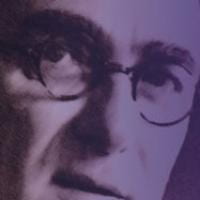 Presented by the Karol Szymanowski Music Society, this year’s Festival opens with a concert celebrating the 80th birthday of Wojciech Kilar with works by Kilar, Baird, Lessel, Szymanowski performed by Joanna Domańska – piano, Roman Widaszek – clarinet and Tadeusz Tomaszewski – horn. The Festival continues with concerts featuring works by Paderewski, Lipiński, Chaczaturian, Gershwin, Czarnecki, Beethoven, Strauss, Rachmaninow, Bach, Chopin, Kotiuk, Cikker, Haidenko, Burdin, Zakhariya, Mozart, Bellini, Gounod, Rachmaninow, and Turina, as well as American gospels and music of the Podhale region. Performers include: Sławomir Tomasik, Anna Gutowska – violin; Robert Morawski, Lubow Nawrocka, Yumi Palleschi (Germany), Tomasz Ritter, Dana Zakhariya (Slovakia) , Grzegorz Biegas, prof. Bronisława Kawalla, and Andrzej Karałow – piano; Ewelina Siedlecka-Kosińska and Ewa Wąsik – soprano; Michajło Zakhariya (Ukraine) – dulcimer; and the OCTAVA ensemble. The final concert will celebrate the 130th anniversary of the birth of Szymanowski, presented by the Beethoven Academy Orchestra with conductor Massimiliano Caldi and violinist Łukasz Błaszczyk.
Presented by the Karol Szymanowski Music Society, this year’s Festival opens with a concert celebrating the 80th birthday of Wojciech Kilar with works by Kilar, Baird, Lessel, Szymanowski performed by Joanna Domańska – piano, Roman Widaszek – clarinet and Tadeusz Tomaszewski – horn. The Festival continues with concerts featuring works by Paderewski, Lipiński, Chaczaturian, Gershwin, Czarnecki, Beethoven, Strauss, Rachmaninow, Bach, Chopin, Kotiuk, Cikker, Haidenko, Burdin, Zakhariya, Mozart, Bellini, Gounod, Rachmaninow, and Turina, as well as American gospels and music of the Podhale region. Performers include: Sławomir Tomasik, Anna Gutowska – violin; Robert Morawski, Lubow Nawrocka, Yumi Palleschi (Germany), Tomasz Ritter, Dana Zakhariya (Slovakia) , Grzegorz Biegas, prof. Bronisława Kawalla, and Andrzej Karałow – piano; Ewelina Siedlecka-Kosińska and Ewa Wąsik – soprano; Michajło Zakhariya (Ukraine) – dulcimer; and the OCTAVA ensemble. The final concert will celebrate the 130th anniversary of the birth of Szymanowski, presented by the Beethoven Academy Orchestra with conductor Massimiliano Caldi and violinist Łukasz Błaszczyk.
The history of Karol Szymanowski’s Music Days dates back to 1977 when Maciej Pinkwart, the curator of the Szymanowski Museum, proposed the first Festival in Zakopane dedicated to Karol Szymanowski. Until 1987 the Karol Szymanowski’s Music Days took place in March, and afterwards in September. Since the 10th Edition, the Festival is held in July, a high peak tourist month in the Podhale region. Symphonic and chamber music concerts take place in the grand churches and beautiful galleries of Zakopane. Such will be the case this year as well, since due to the ongoing renovation of the historic Atma Museum, Szymanowski’s music will migrate to the Orski Gallery, the Zamoyski Municipal Art Gallery, the Jasny Pałac and the Church of the Holy Cross.
For a full program of concerts, visit www.zakopane.eu.
[Sources: pwm.com.pl, zakopane.eu]
Summer Festival Of Chamber Music Masterpieces
The Music Society of Śląsk presents the Summer Festival of Chamber Music for the seventh time with the mission of presenting excellent performances of outstanding works within a beautiful setting. The Music Society is once again pleased to invite audiences to this live musical summer feast.
The concerts of this year’s festival will be held for three consecutive Sundays – July 8, July 15 and July 22 – in places of great aesthetic and acoustic value around Bytom, such as the G .G. Gorczycki Hall in the Muzeum Górnośląskim and the Church of the Holy Spirit.
This festival will be a valuable opportunity to become familiar with songs rarely heard in concert, connect with timeless beauty, and take a moment’s pause for summertime concerts and musical discussions. Admission to all summer concerts is free.
[Sources: press release, stm.art.pl]
Jewish Cultural Festival 2012
By Gary Fitelberg
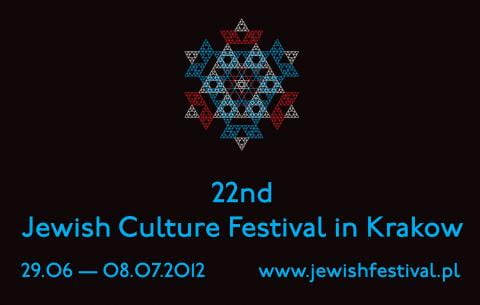 The 2012 Jewish Cultural Festival in Kraków takes place from June 29 through July 8, 2012. It is the 22nd year of this annual cultural celebration, which is held in the Kazimierz district. The festival features exhibitions, films, lecture presentations, and concerts.
The 2012 Jewish Cultural Festival in Kraków takes place from June 29 through July 8, 2012. It is the 22nd year of this annual cultural celebration, which is held in the Kazimierz district. The festival features exhibitions, films, lecture presentations, and concerts.
Each edition of the Festival has aimed to present how rich and diverse Jewish culture is, but this year the many faces of Jewish music were visible as never before, thanks to the new concert series entitled “MuLaKuŻ.” MuLaKuŻ is the Polish abbreviation for Musical Laboratory of Jewish Culture. This exploration of contemporary Jewish music from Poland, which has been presented since 2009 in the Festival’s Cheder Cafe, will now have its debut on the main Festival stage in the Temple Synagogue.
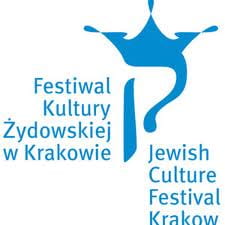 You already know that great klezmer music is not the only style in contemporary Jewish music. Now you will see how the ancient tradition can be translated into the contemporary language of music by Polish artists. This year, MuLaKuŻ concerts were performed by: Maćko Korba Ensemble (Poland – 7/3), Alte Zachen (Poland – 7/4), Mikołaj Trzaska & Ircha Quartet (Poland – 7/5), Horney Trees (Poland – 7/8).
You already know that great klezmer music is not the only style in contemporary Jewish music. Now you will see how the ancient tradition can be translated into the contemporary language of music by Polish artists. This year, MuLaKuŻ concerts were performed by: Maćko Korba Ensemble (Poland – 7/3), Alte Zachen (Poland – 7/4), Mikołaj Trzaska & Ircha Quartet (Poland – 7/5), Horney Trees (Poland – 7/8).
Also presenting concerts during the Festival were Kruzenshtern & Vialka (Israel/France – 6/29), the Bester Quartet & Tomasz Ziętek: Project Gebertig (Poland – 7/2), David Krakauer & Sinfonietta Cracovia with Robert Kabara – cond. (US/Poland – 7/2), Rykarda Parasol & band (US/Poland – 7/6), The Maghreb Orchestra (Israel – 7/6), among many other excellent concerts. For a full listing of performances, visit www.jewishfestival.pl and click “concerts.”
Three cities have always been points of reference for the Festival: Krakow, Jerusalem and New York. These three cities could also represent three main streams of the Festival’s musical program: tradition – both in a clear from as well as filtered through the experience of the Diaspora; avant-garde – represented mostly in the MuLaKuŻ concert series; Alchemia nights – that continue the tradition of well known Jazz Klez Sessions but in a new, exciting formula. This year’s Festival also featured the Shalom on Szeroka Street concert—a 7-hour concert on the world’s largest Jewish stage, presenting Jewish music in all its variety. This Jewish Woodstock in the very heart of Jewish Kazimierz brought together: The Alaev Family, Tamir Muskat (Balkan Beat Box), the 15-strong Israeli brass band Marsh Dondurma, and the Festival All Stars Orchestra on July 7.
[Source: jewishfestival.pl]
Summer Festival In Radziejowice
The 4th Jerzy Waldorff Summer Festival in Radziejowice was held June 30-July 7, 2012 on the garden terrace of the New House of Arts at the Radziejowice Palace. The honorary patron of the Festival was Anna Komorowska, wife of the President of Poland. Radziejowice Palace served as organizer of the Festival, and the Polish Sinfonia Iuventus Orchestra was co-organizer.
One of the most significant occurrences of this year’s edition included a performance of the opera Zamek na Czorsztynie [The Castle at Czorsztyn] by Karol Kurpiński, performed by Sinfonia Iuventus with conductor Michał Niedziałek. In fact, Józef Wawrzyniec Krasiński’s libretto for this opera was developed in Radziejowice. The festival also presented a cycle of four concerts performed by pianist Janusz Olejniczak, who celebrates his 60th birthday this year. Per tradition, on the Sunday of the Festival, organizers invited children to participate in a specially prepared afternoon of arts.
For a full program of the Festival, visit www.polmic.pl.
[Sources: polmic.pl, palacradziejowice.pl]
Social Games. Festival of Musical Installations
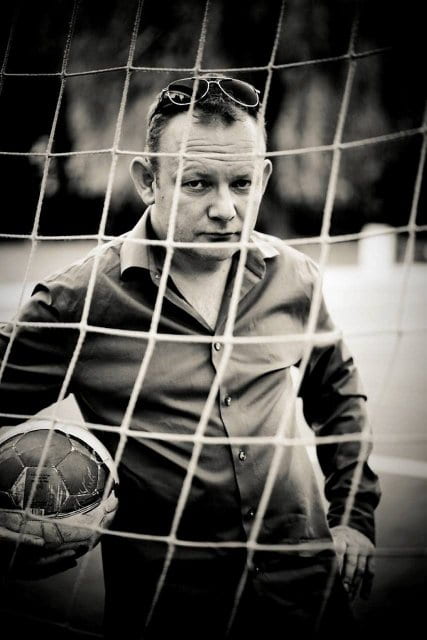 On June 23-24 the Królikarnia Park became a space for musical and sport installations, curated by Paweł Mykietyn (right) and his assistant, fellow composer Wojtek Blecharz. Entitled “Mecz towarzyski” Festiwal Instalacji Muzycznych [Social Games – Festival of Musical Installation], the quarter finals began with a jazz sextet playing a live match in real time and in three dimensions. There was a symphony performed by 111 bicyclists, a grand piano speaking in a human voice, and music coming from underground. At night, the outdoor cinema presented one of the best football players, Zinedine Zidane.
On June 23-24 the Królikarnia Park became a space for musical and sport installations, curated by Paweł Mykietyn (right) and his assistant, fellow composer Wojtek Blecharz. Entitled “Mecz towarzyski” Festiwal Instalacji Muzycznych [Social Games – Festival of Musical Installation], the quarter finals began with a jazz sextet playing a live match in real time and in three dimensions. There was a symphony performed by 111 bicyclists, a grand piano speaking in a human voice, and music coming from underground. At night, the outdoor cinema presented one of the best football players, Zinedine Zidane.
The program included Mauricio Kagel’s Eine Brise for 111 Bicyclists (1996), Krzysztof Penderecki’s Ekecheiria for tape (1972), Peter Ablinger’s & Winfried Ritsch’s Deus Cantando Audioanalyse / Die Aufloesung / Freud In England / Le Grain de la Voix for talking piano, Peter Ablinger’s 3 easy pieces, Wojtek Blecharz’s Phenotype for prepared/amplified violin (2011/2012), and Karol Nepelski’s Pod Powierzchnią [Beneath the surface] (2012).
[Sources: nowyteatr.org, pwm.com.pl; Image: wyborcza.pl]
Music Festival At Grochowska Street
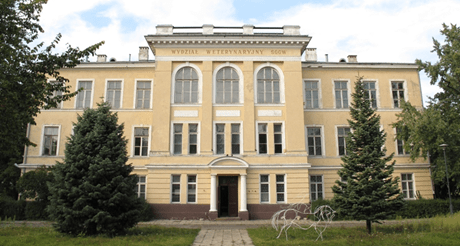 Sinfonia Varsovia welcomed the public into its headquarters during a Festival on Grochowska Street on Thursday June 21. Performances by the wind and string sections of Sinfonia Varsovia, recitals by members of the orchestra, appearances by students from the Warsaw School of Music, as well as the preview of an interactive performance, Strawiński—hip hop, were featured at the Festival. Among the works heard were Dmitri Shostakovich’s Sonata Op.134 for Violin and Piano and the Polish premiere of Krzysztof Penderecki’s Chaconne for Violin and Viola. The performers included violist Katarzyna Budnik-Gałązka, violinist Jakub Haufa, and pianist Marcin Sikorski.
Sinfonia Varsovia welcomed the public into its headquarters during a Festival on Grochowska Street on Thursday June 21. Performances by the wind and string sections of Sinfonia Varsovia, recitals by members of the orchestra, appearances by students from the Warsaw School of Music, as well as the preview of an interactive performance, Strawiński—hip hop, were featured at the Festival. Among the works heard were Dmitri Shostakovich’s Sonata Op.134 for Violin and Piano and the Polish premiere of Krzysztof Penderecki’s Chaconne for Violin and Viola. The performers included violist Katarzyna Budnik-Gałązka, violinist Jakub Haufa, and pianist Marcin Sikorski.
A letter of intent regarding the design of the Concert Hall for Sinfonia Varsovia Orchestra was also signed on June 21. The architectural project was chosen through an international competition in 2010. Signers of the letter included Hanna Gronkiewicz-Waltz (President of Warsaw), Professor Krzysztof Penderecki (Artistic Director of Sinfonia Varsovia), Thomas Pucher (architect), and Janusz Marynowski (Administrative Director of the orchestra).
[Source: polmic.pl]
‘Friends Play Together’ In Gdańsk
A new chamber music festival took place from June 14-19 under the name Przyjaciele grają razem [Friends play together]. These ‘friends’ were young artists from all over the world—including France, Japan, Germany, Bulgaria, and Poland—meeting together in the historically multicultural city of Gdańsk. The diverse musicians displayed their skills in programs that, like them, came from all different places and pulled from many varied genres. A veritable kaleidoscope of music, programs included selections from early music to contemporary, from Bach to Piazzolla, from the impeccable formality of the Viennese classics to the fleeting sounds of the French Impressionists. And these young performers did not shy away from musical experimentation with electronics.
Festival participants included: organizers Arnaud Kaminski (fr/pl) – violin and Krzysztof Tymendorf (pl) – viola), Mira Graczyk (pl/ger) – soprano, Asen Tanchev (bul/ger) – piano, Bartosz Paprot (pl) – guitar, Szymon Jabłoński (pl) – accordion, Anna Szałucka (pl) –piano, Magdalena Darska-Szpakiewicz (pl) – piano, Kaito Shibata (jp/fr) – violin, Hitomi Nishioka (jp) – piano, Błażej Maliszewski (pl) – viola, Mariusz Mruczek (pl) – cello, Michał Mogiła (pl)– oboe, Paweł Kukliński (pl) – violin, Jarosław Stokowski (pl) – bass, and Władysław “Gudonis” Komendarek (pl) – electronics.
In addition to music, there were events celebrating other areas of the arts, including visual arts and film, as well as collaborations between the three. For more information, visit www.przyjacielegrajarazem.blogspot.be.
[Sources: przyjacielegrajarazem.blogspot.be, meakultura.pl]
Q’arto Mondi Festival
 The ideology of the International Chamber Music Festival “Q’arto Mondi” is to introduce the audiences of Poznań to the art of the string quartet, and to present this chamber music formation in a variety of styles and genres. Previous editions featured among others : Turtle Island Quartet, Cuarteto Casals, Camerata Quartet, Silesian Quartet, Maciej Grzybowski, Andrzej Bauer and Mieczysław Szcześniak. The diversity of this Festival derives from interesting repertoire proposals and marvelous artists invited by festival’s directors and organizers, the Meccorre String Quartet.
The ideology of the International Chamber Music Festival “Q’arto Mondi” is to introduce the audiences of Poznań to the art of the string quartet, and to present this chamber music formation in a variety of styles and genres. Previous editions featured among others : Turtle Island Quartet, Cuarteto Casals, Camerata Quartet, Silesian Quartet, Maciej Grzybowski, Andrzej Bauer and Mieczysław Szcześniak. The diversity of this Festival derives from interesting repertoire proposals and marvelous artists invited by festival’s directors and organizers, the Meccorre String Quartet.
This year’s 3rd edition was held between April 21-27 and featured masters of the classical and jazz stage, including Leipziger Streichquartett—a true legend of the classical music world, whose discography consists of over 70 recordings. Another recital on the program belonged to one of the top quartets of the young generation – Bennewitz Quartet from Prague. The Meccorre String Quartet shared the stage with such exquisite guests as Friedemann Weigle and Eckart Runge from the Artemis Quartett, who join them to perform Brahms’ Sextett. Eckart Runge and Jacques Ammon also performed their unforgettable “Jazz, Tango Nuevo” Project. The final concert introduced the Atom String Quartet – a young, Polish jazz string quartet that recently conquered the Polish jazz stage.
Festival venues were Aula Nova of the I. J. Paderewski Academy of Music and “Zamek” Culture Centre in Poznań.
[Sources: polmic.pl, qartomondi.com]
Discography
Kilar Music For Film And Concert
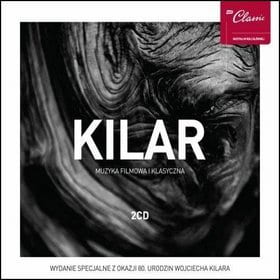 Kilar: Classical and Film Music
Kilar: Classical and Film Music
Wojciech Kilar (b. 1932): 2 CDs of classical compositions and works for film—for a full listing of tracks, see rmfclassic.pl
National Polish Radio Symphony Orchestra (NOSPR), Antoni Wit and Konrad Bryzek, cond.; Silesian Philharmonic Orchestra; Mirosław Jacek Błaszczyk, cond.; Warsaw National Philharmonic, Antoni Wit, cond.; Kapela Góralska Jana Karpiela “Bułecki”; Stanislaw Hadyn “Śląsk” Folk Song and Dance Troupe
Sony Music/RMF Classic 88725438352
A collaboration between RMF Classic and Sony Music Poland, this album will be released in July on the occasion of the 80th birthday of Wojciech Kilar. The 2-CD set includes some of Kilar’s greatest compositions for film as well as the classical concert stage. The first album features the best-known movie themes from soundtracks of films—such as Trędowata [Leper], Ziemia obiecana [Promised Land], Smuga cienia [Shadow], Dracula by Francis Ford Coppola and Śmierć i dziewczyna [Death and the Maiden] directed by Roman Polanski—performed by the National Polish Radio Symphony Orchestra (NOSPR).
The second CD contains classical works based on religious themes and arrangements of folk music from the mountains, in many cases so far unpublished. The recordings were performed by the Warsaw National Philharmonic, Silesian Philharmonic Orchestra, Kapela Góralska Jana Karpiela “Bułecki” and Stanislaw Hadyn “Śląsk” Folk Song and Dance Troupe.
[Sources: rmfclassic.pl, merlin.pl]
Symphonic Poems Of Morawski
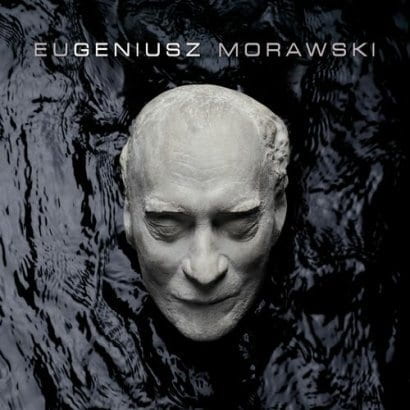 Eugeniusz Morawski – Symphonic Poems
Eugeniusz Morawski – Symphonic Poems
Eugeniusz Morawski-Dabrowa (1876-1948): Don Quichotte; Ulalume; Nevermore
Sinfonia Varsovia, Monika Wolińska – cond.
CD Accord ACD 176
CD Accord publications has released a new album containing all existing symphonic poems by composer Eugeniusz Morawski—Don Quichotte, Ulalume and Nevermore. The first complete recording of Morawski’s works in this genre, this project was funded by the Bruckner Foundation. It opens the first – and hopefully the possibly shortest – act of bringing the preserved compositional oeuvre of Morawski to light from within the deep mist of 20th century history.
This album would have never happened without the truly infectious and inspiring enthusiasm of conductor Monika Wolińska, who was joined by the Sinfonia Varsovia orchestra for the recording. This distinguished young conductor was awarded the 2011 Merit Medal for Polish Culture by the Ministry of Culture and National Heritage.
Charles Baudelaire once wrote: “Many a jewel sleeps buried in shadow and oblivion, far from the miner’s pickaxe and drill; many a flower reluctantly pours forth its sweet perfume like a secret in the depths of solitude”. Those words of the French poet seem to fit perfectly Eugeniusz Morawski. —based on notes by Marcin Gmys, translated by Izabela Bogdan, from cdaccord.com.pl
[Sources: cdaccord.com.pl, pwm.com.pl]
CD Reviews
by Gary Fitelberg
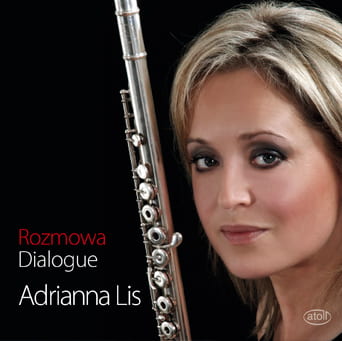 DIALOGUE/ROZMOWA
DIALOGUE/ROZMOWA
Sonatine – Dialogue between Wind and Snow by Gao Ping; Sonatina for flute and piano by Wojciech Kilar; When We Fell by Michael Williams; The Conversation of Prayer by Roxanna Panufnik; Sonata Medgugorska by Łukasz Woś; 4 pieces from ‘Rainforest’ by Jack Body; Polish Dances Op. 155 by Anthony Ritchie; and The Melbourne Cup by Michał Rosiak
Adrianna Lis – flute; Sarah Watkins – piano
Atoll Records ACD 742
Having heard Adrianna Lis in concert, I was excited by the prospect of writing for her and was thrilled to contribute a piece for her CD Dialogue/Rozmowa produced by Atoll Records…. The folk-like melody that runs through is an adaptation of the Polish song To Ostatnia Niedziela composed by Jerzy Petersburski (1936)—a nostalgic tango describing the final meeting of former loves who are parting, which had the dubious honor of often being poled while Jewish prisoners were led to their deaths in the gas chambers. The vocal track is recording of some of the text from this song but toward the end a passage from Nietzsche’s Thus Spoke Zarathustra is quoted in Polish.
—from a program note by Michael Williams, whose piece When We Fell was commissioned by and dedicated to Adrianna Lis
Adrianna Lis—more affectionately known as Ada to those who know her closely—has just released her debut CD Dialogue/Rozmowa on the Atoll Records label in New Zealand. The CD features compositions by Anthony Richie, Michael Williams, Gao Ping, Jack Body as well as many Polish composers of notoriety including Wojciech Kilar, Łukasz Woś, Michał Rosiak and Roxanna Panufnik.
What a delightful and entertaining collection of compositions for flute as played by the very uniquely talented Adrianna Lis and her accompanist, pianist Sarah Watkins. Born in Poland and now living in New Zealand, Lis offers a magnificent and solid performance both on the concert stage and in the recording studio.
Lis is currently the principal flautist of the Auckland Chamber Orchestra. She began her musical training in her native Poland with Anna Kolarz and Barbara Mazurkiewicz and continued studies at the Wocław Academy of Music with the renowned professor Jezry Mrozik. In 1995, she also studied solo and orchestral studies with Jean Claude Gerard at the Staatliche Hochschule fur Musik und Darstellende Kunst in Stuttgart.
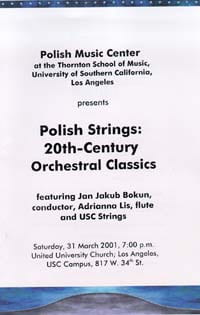 A graduate of the USC Thornton School of Music, Lis was once an active participant in events and publications produced by the Polish Music Center at USC—such as the Concert of 20th Century Polish Music of October 2000, the Polish Music Strings concert of March 2001 and the Winter 2003 issue of the Polish Music Journal (Vo. 6, No. 2). During her post-graduate studies at USC, she studied with Los Angeles Philharmonic flautist James Walker.
A graduate of the USC Thornton School of Music, Lis was once an active participant in events and publications produced by the Polish Music Center at USC—such as the Concert of 20th Century Polish Music of October 2000, the Polish Music Strings concert of March 2001 and the Winter 2003 issue of the Polish Music Journal (Vo. 6, No. 2). During her post-graduate studies at USC, she studied with Los Angeles Philharmonic flautist James Walker.
Lis has received numerous awards, honors, and prizes at solo and chamber competitions in such destinations as Wrocław, Szczecinek, Olsztyn, Duszniki Zdrój , Enschede, Chicago, Carmel, and Los Angeles. Her honors include the Jan Adolf Górecki Scholarship, Leni Febland Scholarship, Fryderyk Chopin Scholarship, Flute Talk Magazine Competition, Titi Najera Mason Memorial Endowed Music Scholarship, and Paul Owen McLarand Memorial Endowed Music Scholarship.
We all wish her well on her successful debut CD and hope another one is available soon for our listening pleasure!
[Sources: flutefocus.com, scoop.co.nz, sounz.org.nz]
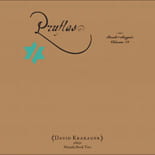 Pruflas: The Book of Angels Vol. 18
Pruflas: The Book of Angels Vol. 18
From John Zorn’s Masada Book Two: 1. Ebuhuel, 2. Kasbeel, 3. Vual, 4. Parzial-oranir, 5. Egion, 6. Neriah-mahariel, 7. Tandel and 8. Monadel
Sheryl Bailey – guitar, Jerome Harris – bass and vocals, Michael Sarin – drums, KeepAlive –electronics
Tzadik 7396
The New York Times hails clarinetist David Krakauer as “a breathtakingly flamboyant clarinetist, racing through every octave of his instrument and turning thrills into laughs or cries of anguish.”
An American of Polish descent, Krakauer is praised internationally for his astounding ability to play in a myriad of musical genres with “prodigious chops” (The New Yorker) and “soulfulness and electrifying showiness” (The New York Times), has recorded for the Tzadik label a collection of tunes selected especially for him to play by John Zorn from his milestone work, The Book of Angels.
You will definitely want to bite into this CD and savor the flavor of original Klezmer music.
The Book of Angels is the second book of 300 songs for John Zorn’s band Masada, composed over a period of a few months during 2004. In this recording, Krakauer interprets these Masada songs brilliantly with a traditional (as well as not-so-traditional) Klezmer vibe, creating a fascinating meeting of old and new (nu!). Joining Krakauer on the recording are Sheryl Bailey, guitar; Jerome Harris, bass and vocals; Michael Sarin, drums; and KeepAlive, electronics, plus a special guest appearance by composer/producer John Zorn himself.
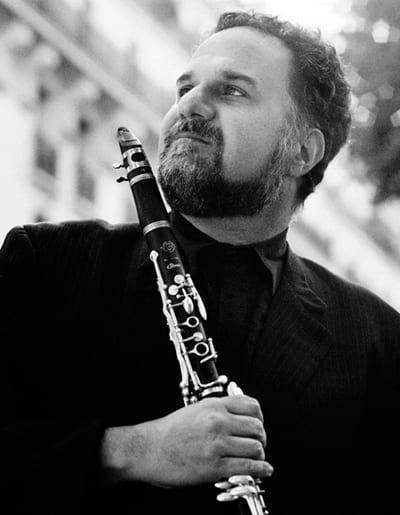 David Krakauer has been closely affiliated with and associated with Zorn’s Radical Jewish Culture movement since its beginning in the early 1990’s. Krakauer initially came to Zorn’s attention through his pioneering work with the Klezmatics in the late 1980’s. In 1992, he was invited to be part of the premiere of Zorn’s epic composition Kristallnacht at Art Projekt in 1992 in Munich. This event plus the subsequent release of a commercial recording of the piece launched the concept of Radical Jewish Culture. Soon after, Krakauer was given the “green light” and singular honor of releasing the first record in the RJC series on Zorn’s then budding Tzadik label. The record—Klezmer Madness!—was also the first that Krakauer recorded and released under his own name.
David Krakauer has been closely affiliated with and associated with Zorn’s Radical Jewish Culture movement since its beginning in the early 1990’s. Krakauer initially came to Zorn’s attention through his pioneering work with the Klezmatics in the late 1980’s. In 1992, he was invited to be part of the premiere of Zorn’s epic composition Kristallnacht at Art Projekt in 1992 in Munich. This event plus the subsequent release of a commercial recording of the piece launched the concept of Radical Jewish Culture. Soon after, Krakauer was given the “green light” and singular honor of releasing the first record in the RJC series on Zorn’s then budding Tzadik label. The record—Klezmer Madness!—was also the first that Krakauer recorded and released under his own name.
David Krakauer occupies the unique position of being both one of the world’s leading exponent of Eastern European Jewish Klezmer music, plus a major voice in classical music and avant-garde improvisation. His Klezmer sound has been described by RootsWorld as “an electrifying amalgam of cozy Eastern European traditions, free-form jazz, and dissonant howls of rage and pain…a bittersweet statement of personal and collective race memory.”
David Krakauer made a bold declaration when each member of his former Klezmer group, The Klezmatics, was being introduced at his first Jewish Cultural Festival in Kraków during 1992. “My name is David Krakauer. Welcome. This is my city.” His words reverberate even until this day—2012 commemorates the 20th anniversary of his concert performances at this international music and cultural festival, and on July 2, Krakauer returned to perform at the Festival with the excellent local ensemble, Sinfonietta Cracovia and conductor Robert Kabara (see the Festivals section above for more).
Krakauer is one of the greatest of all modern Klezmer clarinetists. He has forged new roads bringing a blend of Jewish music made up of and incorporating funk, hip-hop and jazz into the artistic portrait that is one uniquely beautiful creation. David’s arrangements of Masada compositions take both the music and the band to exciting new heights and places filled with cutting-edge solos, telepathic interplay, and driving rhythms. This is surely a historic meeting of two of the most creative musicians in modern Jewish music.
For more information, visit www.davidkrakauer.com.
[Sources: tzadik.com, amazon.com, davidkrakauer.com]
Plowright For Hyperion: Romantic Piano Concerto Series
 At the end of June in Glasgow, British pianist and Polish romantic repertoire specialist Jonathan Plowright will record his third CD for Hyperion Records’ Romantic Piano Concerto series—a series whose launch included concertos of Moszkowski and Paderewski conducted by Jerzy Maksimiuk. For this latest addition to the series, Plowright will perform with the BBC Scottish Symphony Orchestra and Polish conductor Łukasz Borowicz, in a program featuring concertos by Polish composers Władysław Żeleński and Aleksander Zarzycki.
At the end of June in Glasgow, British pianist and Polish romantic repertoire specialist Jonathan Plowright will record his third CD for Hyperion Records’ Romantic Piano Concerto series—a series whose launch included concertos of Moszkowski and Paderewski conducted by Jerzy Maksimiuk. For this latest addition to the series, Plowright will perform with the BBC Scottish Symphony Orchestra and Polish conductor Łukasz Borowicz, in a program featuring concertos by Polish composers Władysław Żeleński and Aleksander Zarzycki.
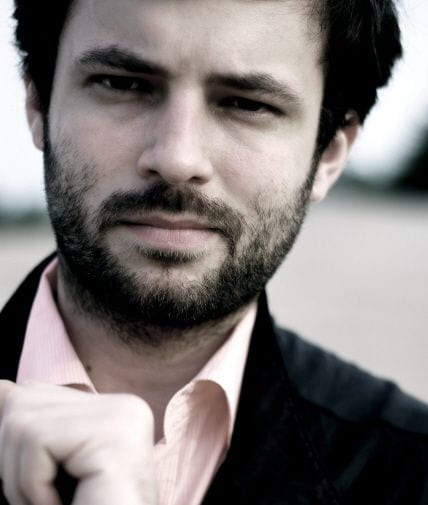 As the recording date approaches, Plowright has enjoyed getting to know these new works
As the recording date approaches, Plowright has enjoyed getting to know these new works
These concertos are typical of the Romantic genre, and a joy to play, the Żeleński in particular is probably one of the finest concertos I have been fortunate enough to perform… Żeleński has certainly been the discovery of the year for me!
Plowright has worked with Maestro Borowicz before, in a performance of Zygmunt Stojowski’s Rhapsodie Symphonique with the Polish Radio Symphony Orchestra in June 2011—a collaboration that both artists enjoyed enormously. Plans are also afoot to release the live recording of that particular concert on the Hyperion label as well.
[Sources: press release, jonathanplowright.com]
Performances
Skrowaczewski Returns To Minnesota Orch.
The Minnesota Orchestra marked the end of the season and the beginning of a 13-month renovation of the 38 year old Orchestra Hall with a concert on June 14, 2012. The occasion brought to the stage seven of the conductors currently or previously associated with the Orchestra, among them Osmo Vänskä, Andrew Litton, Doc Severinsen and Stanisław Skrowaczewski—the ensemble’s current conductor laureate and former music director for 19 years.
Writing for the Minneapolis Star Tribuneon June 16, music critic Micheal Anthony—who has covered Skrowaczewski for more than three decades—wrote the following about the monumental event:
The concert mostly avoided the variety-show feel that these events often possess. The selections were interesting and unusual, by and large, the performances were alert and polished… Stanislaw Skrowaczewski, 88, conducted his own compelling orchestration of Bach’s Toccata and Fugue in D Minor, which he also led as the first work performed in the new Orchestra Hall.
To read the full article, visit www.startribune.com.
[Source: startribune.com]
Jazz at the KF – NY & DC
Branches of the Kosciuszko Foundation in New York and Washington, DC held interesting jazz concerts in June. See below for details.
Adam Makowicz in NY
 On June 14, 2012, Polish pianist and composer Adam Makowicz presented a concert and book evening at the Kosciuszko Foundation headquarters in New York City. Following the concert performance, Makowicz’s biography Grac Pierwszy Fortepian was discussed by Krzysztof Medyna, a fellow Polish jazzman residing in US.
On June 14, 2012, Polish pianist and composer Adam Makowicz presented a concert and book evening at the Kosciuszko Foundation headquarters in New York City. Following the concert performance, Makowicz’s biography Grac Pierwszy Fortepian was discussed by Krzysztof Medyna, a fellow Polish jazzman residing in US.
Often compared to Art Tatum, Adam Makowicz made a strong impression when he first came to the US. Although his technique is nearly on Tatum’s level, Makowicz has long had his own style, mixing together different aspects of jazz, ranging from swing to hard bop. He started playing jazz in the late ’50s and with Tomasz Stakńo formed one of the first European free jazz groups, the Jazz Darings. He led his own groups in Warsaw from 1965 on and in 1970 played electric piano in Michał Urbaniak’s band. Makowicz has also worked with Urszula Dudziak and recorded several albums in Poland before coming to the United States in 1977. Although the initial publicity (when he was championed by John Hammond) has long since died down, Makowicz has only continued to improve as a pianist. He has recorded many records as a leader for such labels as Columbia, Stash, Choice, Sheffield Lab, Novus, and Concord.
Adam Baldych in DC
On Sunday, June 17, violinist and composer Adam Baldych performed with pianist Glenn Zaleski at the Kosciuszko Foundation in Washington, DC. They played pieces from Baldych’s album Magical Theatre as well as tunes from soon to be released Imaginary Room.
First called an “infant prodigy,” violinist, composer and music producer Adam Baldych is now one of the most interesting jazz violinists in Europe. Since age 16 Adam has performed internationally all around Europe, in Asia and the US. He has played with such jazz masters as: Leszek Możdżer, Lars Danielsson, Jim Beard, Jarosaw Smietana and Luluk Purwanto.
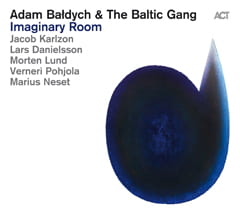 His newest CD, Adam Baldych & The Baltic Gang – Imaginary Room, was released on June 22 on the German label ACT Music (ACT 9532-2). The album was prepared in cooperation with outstanding Scandinavian musicians—Jacob Karlzon (piano), Lars Danielsson (double bass, cello), Morten Lund (percussion), Verneri Pohjola (trumpet) and Marius Neset (saxophone) —and recorded at the legendary Hans Tone Studio in Berlin. Baldych’s new compositions are inspired by the tunes of Krzysztof Komeda and Tomasz Stańko and have a very characteristic Polish sound.
His newest CD, Adam Baldych & The Baltic Gang – Imaginary Room, was released on June 22 on the German label ACT Music (ACT 9532-2). The album was prepared in cooperation with outstanding Scandinavian musicians—Jacob Karlzon (piano), Lars Danielsson (double bass, cello), Morten Lund (percussion), Verneri Pohjola (trumpet) and Marius Neset (saxophone) —and recorded at the legendary Hans Tone Studio in Berlin. Baldych’s new compositions are inspired by the tunes of Krzysztof Komeda and Tomasz Stańko and have a very characteristic Polish sound.
[Source: press release]
Anniversaries
Born This Month
-
July 04, 1904 – Artur MALAWSKI, composer (d. 1957)
-
July 06, 1837 – Władysław ŻELEŃSKI, composer (also a doctor of philosophy, d.1921)
-
July 09, 1931 – Eugeniusz KNAPIK, composer
-
July 10, 1936 – Jan Wincenty HAWEL, composer and conductor
-
July 10, 1835 – Henryk WIENIAWSKI, violin virtuoso & composer (d. 1880, Moscow)
-
July 10, 1929 – Tadeusz STRUMIŁŁO, musicologist (d. 1956)
-
July 13, 1775 – Antoni Henryk RADZIWIŁŁ, composer, cellist, patron of arts (d. 1833)
-
July 14, 1926 – Jan KRENZ, conductor & composer
-
July 16, 1947 – Grażyna PSTROKOŃSKA-NAWRATIL, composer
-
July 17, 1932 – Wojciech KILAR, composer
-
July 22, 1930 – Leoncjusz CIUCIURA, composer
-
July 23, 1884 – Apolinary SZELUTO, composer, member of Młoda Polska [Young Poland] group (d. 1966)
-
July 26, 1928 – Tadeusz BAIRD, composer (d. 1982)
-
July 26, 1922 – Andrzej KOSZEWSKI, composer (choral music)
-
July 29, 1943 – Marta PTASZYŃSKA, composer & percussionist
-
July 31, 1810 – Julian FONTANA, close friend and musical associate of Chopin (d.1869)
Died This Month
-
July 1, 2001 – Halina CZERNY-STEFANSKA (b. 1922), pianist
-
July 6, 1911 – Kazimierz HOFMANN (b. 1842), pianist, composer, and father of the renowned virtuoso and director of Curtis Institute, Józef Hofmann
-
July 8, 1906 – Franciszek BORNIK (b. 1870), priest, conductor, writer
-
July 21, 1964 – Zygmunt SITOWSKI (b. 1906), musicologist
-
July 23, 1829 – Wojciech BOGUSŁAWSKI (b. 1757), the first theatre director in Poland, the author of several opera libretti (set by J. Stefani and J. Elsner)
-
July 23, 1909 – Zygmunt NOSKOWSKI (b. 1846), composer, pedagogue and conductor
-
July 25, 1831 – Maria SZYMANOWSKA (b. 1789), pianist and composer
